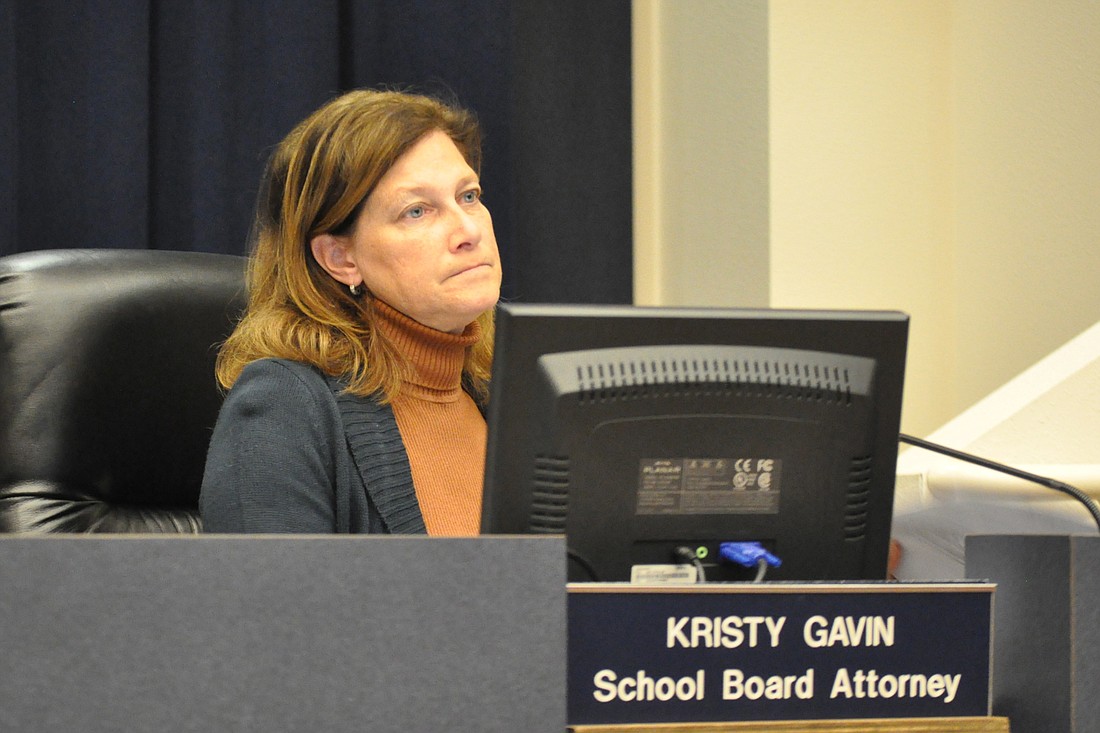- April 23, 2024
-
-
Loading

Loading

The Flagler County School District is implementing a set of controversial federal regulatory changes about how schools investigate alleged sexual misconduct.
"It used to be that the alleged perpetrator was immediately removed from the class. That can't be done anymore. That student has a right to continue to be in that class until there is an actual finding."
— KRISTY GAVIN, School Board attorney
The U.S. Department of Education under Betsy DeVos announced the changes in May, rolling back regulations the Obama administration enacted to protect the rights of sexual harassment victims on college campuses under Title IX, the law barring sex discrimination in programs receiving federal funding.
Critics had said that the Obama administration's regulations led schools to overcorrect in ways that undermined due process for accused students, who were sometimes removed from classes or dorms before investigations were completed, or were barred from cross-examining their accuser or presenting potentially exculpatory evidence.
The regulatory overhaul that took place this past spring and went into effect in August stretched to over 1,000 pages and also affects K-12 schools, Flagler County School Board Attorney Kristy Gavin told School Board members during an Oct. 6 workshop.
Gavin said the new regulations are designed to prevent alleged perpetrators from being penalized on the basis of unsubstantiated allegations.
"It used to be they [the accused] were immediately banished," she said. "You can't do that anymore. You have to ensure that there's going to be safety for the victim, but, for example, if they are in classes together, it used to be that the alleged perpetrator was immediately removed from the class. That can't be done anymore. That student has a right to continue to be in that class until there is an actual finding that that student truly did a Title IX violation."
Removing students from some classes or programs — Gavin presented a hypothetical scenario of an accuser and an accused student sharing the same International Baccalaureate courses — could have longterm consequences.
Board member Maria Barbosa was incredulous that the new regulations would keep a young victim and the person accused of traumatizing them in the same classroom.
"A lot of this stemmed from college, where you had false reports," Gavin said. "And you had the college student who was automatically suspended and kicked out of school. ... And then once they were kicked out of that school and they attempted to get into other schools, they could not get into other schools — without any proof that the incident happened."
Under the new regulations, schools would be required to complete their Title IX investigations in 10 days, and the individual who determines the penalty for the accused student can not be the person who conducted the investigation. Appeals would go to the district rather than the school.
Board member Colleen Conklin said she understood the goal of protecting the rights of the accused, but 10 days is still a long time for a victim to have to share classroom space with a perpetrator.
Superintendent Cathy Mittelstadt said the district is training its administrators on the new regulations.